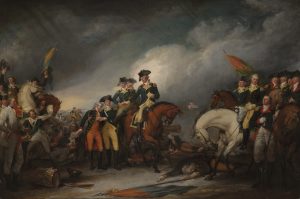In 1850 American History Summary, the political balance was upset as the number of free states were allowed to exceed the number of slave states. The United States was eager to admit California as a state after the discovery of gold in 1848, but the Wilmot Proviso (1846) prevented slavery anywhere in the new territory gained from Mexico.
Thus California could only be admitted as a free state. Southerners viewed the resulting imbalance as a threat to their very way of life; they feared that the federal government would soon be dominated by an antislavery agenda.

Compromise of 1850 admits California as a free state; New Mexico and Utah territories are organized with no restrictions on slavery until they apply for statehood. Under the principle of “popular sovereignty,” voters in those territories will decide for themselves whether slavery is permitted.
Other laws “prohibited the public sale of slaves in the District of Columbia; included the new Fugitive Slave Act; and federalized Texas’s pre-annexation debt in exchange for Texas’s relinquishment of its substantial territorial claims upon New Mexico Territory.”
The admission of California was balanced by the fact that the Utah and New Mexico territories were allowed to determine their own free or slave status through popular sovereignty. But the farthest-reaching aspect of the compromise was the inclusion of the Fugitive Slave Law, a law intended to prevent southern unrest but which resulted in outrage and indignation in the North.
The Fugitive Slave Act made any federal official who did not arrest a runaway slave liable to pay a fine. This was the most controversial part of the Compromise of 1850 and caused many abolitionists to increase their efforts against slavery.
Reactions to the Compromise of 1850 and the Fugitive Slave Law exacerbated rather than relieved the growing divisions between the North and the South. In an effort to mollify the South, politicians alienated the North and transformed many whites who had previously considered themselves unaffected by slavery into fervent abolitionists.
One northerner strongly affected by the Fugitive Slave Law was Harriet Beecher Stowe (1811-1896). Stowe argued that the law called everyone, even women, and children, to act in defense of freedom. Her own response took the form of the novel Uncle Tom’s Cabin (1851-1852), which portrayed the horrific experiences of slavery in graphic detail.
Abraham Lincoln’s election to the presidency in 1860 brought to a climax the long-festering debate about the relative powers of the federal and the state governments.